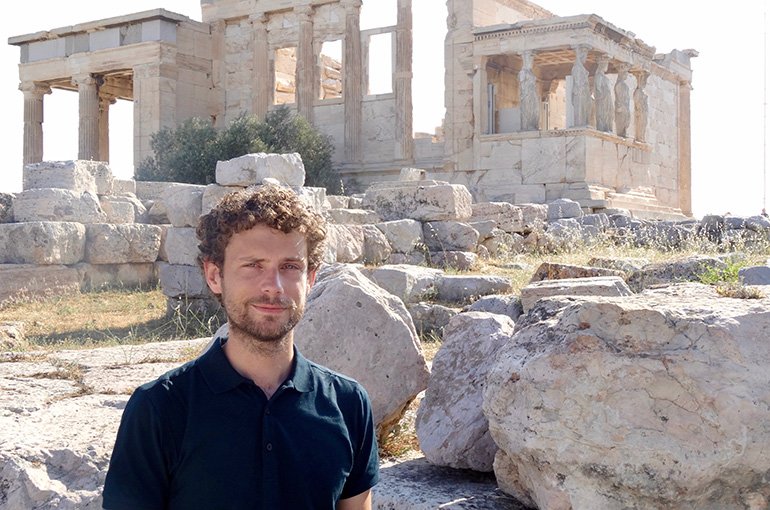Janric van Rookhuijzen receives KNAW Early Career Award for research on Acropolis

Researcher Janric van Rookhuijzen recently won the KNAW Early Career Award for his research on the Acropolis in Athens. The KNAW presents the award annually to researchers at the beginning of their careers who have innovative, original ideas. Besides Van Rookhuijzen, eleven academics from other universities were also awarded.
Research on the Acropolis
The jury praised Van Rookhuijzen’s innovative research on the Acropolis and his use of historical and archaeological sources. “[These] show that the world-famous temples on the Acropolis may have had different functions and names than previously thought.”
“For example, what we know as the Parthenon (‘the House of the Virgins’) was called the Hekatompedon (‘the Temple of 100 feet’) by the ancient Greeks themselves. Van Rookhuijzen also examines the Acropolis as a monumental symbol of Greece, Europe and what is called ‘Western civilisation’. It turns out that this status is linked to negative stereotypes of Eastern peoples such as the Persians and the Turks.”
Encouragement for young researchers
“I’m absolutely delighted with this recognition of my research,” Janric van Rookhuijzen reacts. “The prize encourages myself and other young researchers to continue exploring the fascinating world of antiquity. Antiquity may be far behind us in time, but lives on in all kinds of ways in our current society. This heritage belongs to us all.”
KNAW Early Career Awards
Since 2019, the KNAW presents the Early Career Award to innovative and original scientific research by young scholars. Up to twelve KNAW Early Career Awards are presented annually, three in each of the four KNAW domains. By doing so, the KNAW hopes to encourage the further development of a diverse and broad palette of early career researchers in various fields within the practice of science.
Janric van Rookhuijzen is to receive his award on 14 February 2023. The winners will receive a work of art and a sum of 15,000 euros to spend on their research careers.

